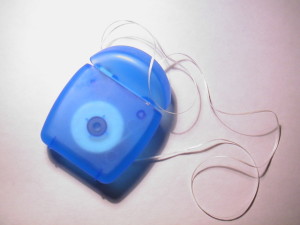
By: Dr. Elizabeth Eggert
E-cigarettes, or e-cigs, are here to stay. The popular devices that turn a nicotine-laden liquid into inhalable vapor have been on the market since 2007. As more and more Americans—including children—get hooked on e-cigs, research into the oral health effects of e-cig ingredients remains depressingly dim.
What’s in e-cig vapor?
E-cigarette vapor is primarily propylene and propylene glycol, synthetic chemicals used as solvents and preservatives in other products. An e-cig turns the liquid into a vapor that contains nicotine. Often, this vapor is flavored to make vaping more enjoyable—and to attract younger users.
Why does the FDA want to regulate e-cigs?
It’s impossible to know exactly what is in e-cig vapor because the products are not regulated by the FDA. The agency has asked to regulate the devices as pharmaceutical devices or tobacco products. If legislation passes, e-cig companies would be required to disclose the ingredients in vape liquid. The FDA would be empowered to set minimum age and identification requirements for those purchasing e-cigs.
What does the research say about e-cigs and my health?
First, some statistics. A 2015 survey of middle and high schoolers found that 3 million of them are using e-cigs. That’s 16 percent of American high schoolers and 5.3 percent of middle schoolers. A study a year earlier found tasty flavors are the primary reason kids vape.
Despite these disturbing trends, little research exists on the health effects of e-cigarette use in adults or children. We do know that high nicotine levels in the mouth can increase the risk of periodontal damage. And research has found smokers who use e-cigarettes are 59 percent less likely to quit smoking, which continues to expose smokers to the well-documented health effects of cigarette smoke.
The National Institutes of Health and the National Institute of Dental and Craniofacial Research (NIDCR) have both called for funding for research on the oral health effects of e-cig vapor. According to the NIDCR, “the effects of long-term exposure to [electronic cigarettes] are completely unknown and present a potential oral cancer and periodontal disease risk for users, due to their higher exposure to these chemical mixtures.”
What can I do?
The best thing you can do is never start vaping, and if you currently use e-cigs, quit. Read the NIDCR article linked above and share this information with your school-aged children. Urge your congressional representatives and senators to press for regulation of e-cigs and to fund oral health research.
For more information about the oral health effects of e-cigarettes, speak with your dentist. Contact Eggert Family Dentistry today to schedule a visit. Call (651) 482-8412.




